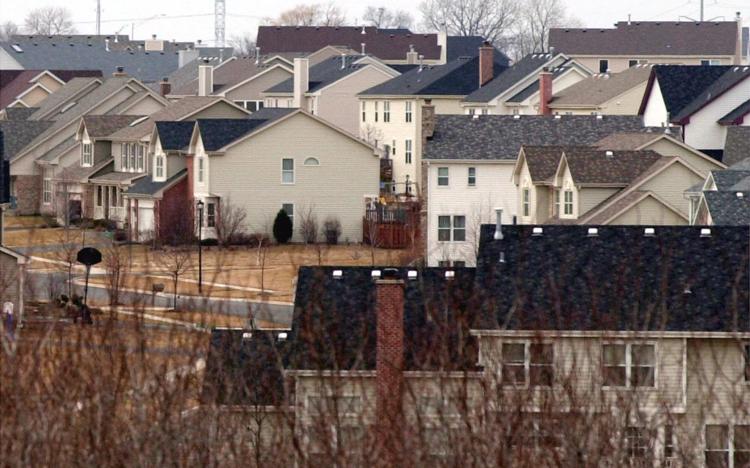COVID-19 closures could push residential property tax bills higher in coming years

A housing development in Hoffman Estates.
(The Center Square) – The COVID-19 pandemic could have lasting consequences for property owners, especially if business closures shift property tax burdens to homeowners.
Property taxes aren’t implemented like income taxes, where a percentage of each dollar earned is diverted to the taxing body. Instead, the taxing body sets an amount it needs and spreads that burden over all the properties that fall within its boundaries based on assessed value.
In the case of businesses, they’re taxed partly on how well their business does. In times of disasters that suddenly cut the business’ income, the property owner can have the company’s tax burden reduced.
That was the case for many businesses forced to close their doors in March under Gov. J.B. Pritzker’s emergency order.
“The government shut them down so the business can’t generate any money, making the property worth less,” said Ted Dabrowski, president of the nonprofit Wirepoints.
In a report, Dabrowski and John Klingner said a large number of property assessment adjustments is going to lead to a shift of the total tax burden to residents who cannot change their property values in the same manner as businesses.
Bob Ross, chief county assessment officer for McHenry County, said those adjustments represent only a fraction of part of a business assessment.
“We have a formula that allows for temporary relief at not the full occupancy or vacancy off of the assessment, but a partial amount off that improvement assessment,” he said. “Several business sectors, industrial and others, were able to keep their operations open and wouldn’t even be affected by the COVID impact.”
The assessing body also takes into account any federal assistance the business may have received, Ross said.
The real threat, both Ross and Dabrowski said, is businesses permanently closing or shedding office space to allow employees to work from home.
“When that vacancy becomes a long-term problem, that’s when you get the real shift from commercial and industrial to residential that’s permanent,” Ross said, adding that office-heavy areas like Naperville and Lisle could see a more pronounced shift in the property tax burden to residents.
“You’ll see shopping centers, standalone restaurants, bars, places like that may never open up again,” Dabrowski said. “Whatever assessments on those properties would definitely come down. Since local governments have shown little interest in controlling spending, that means the burden is going to shift to homeowners.”
A survey of the restaurant industry found 20 percent of Illinois’ restaurants could permanently close this year.

